There are a number of ways to modify your motorhome nowadays. Minor touches can make the motorhome more homely but more dramatic changes such as changing the fuel type, chipping or remapping the engine, altering the motorhome suspension or adding alloy wheels can affect its look and overall performance.
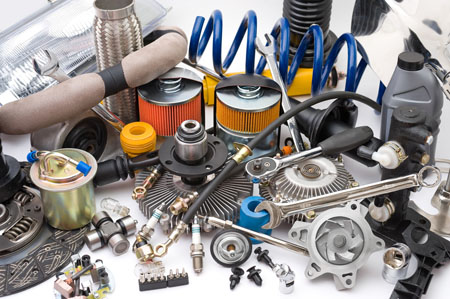
There can often be some uncertainty on whether you need to make your insurance provider aware of such modifications or if they affect the cost of your motorhome insurance.
Let’s tackle both these areas as we explore some of the most common motorhome modifications in detail.
Engine remapping or chipping
Engine remapping or ‘chipping’, is the process by which a vehicle’s Engine Control Unit (ECU) is programmed to be more economical and in some cases improve performance through increased brakehorse power (bhp) and torque.
We can’t speak for all insurance providers but for Caravan Guard customers, engine remapping or chipping has no affect on their motorhome policy so long as the modification is carried out by a professional and doesn’t increase the motorhome’s horse power by more than 30%.
That said it’s still vital that you inform your insurer when you’ve had your motorhome’s engine chipped or remapped.
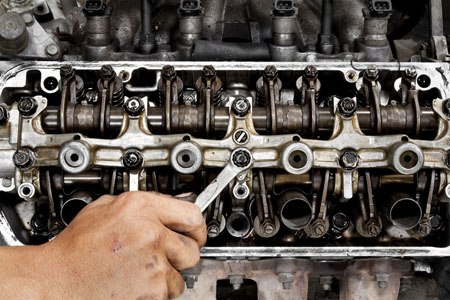
If you’re looking to have your motorhome engine’s chipped, the remapping page on the Phantom website could be a good place to start.
Turbocharger fitted
Those of you who want to give your motorhome a little power boost, may want to consider a turbo charger. Turbochargers can enhance a motorhome engine’s horsepower whilst still maintaining a balanced loading weight.
Again, they won’t affect your insurance as long as your original motorhome’s horse power is not increased by more than 30%. That said you should always inform your insurance provider if you’ve had one fitted.
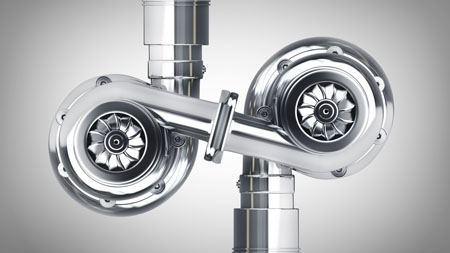
LPG Gas Conversion
Liquefied Petroleum Gas (LPG) also known as Propane, is widely used in motorhomes. Converting your motorhome to LPG means it benefits from an additional fuel system that’s considered more eco-friendly.
Although it’s called a ‘conversion’ the motorhome’s existing fuel system remains intact but because the cost of LPG is significantly less than regular petrol, it can be a far more economical option.
Adding an LPG gas convertor to your motorhome is not seen as a big risk increasing factor by Caravan Guard and as such there is no specific premium load.
However, we’d recommend notifying your insurer when you fit an LPG convertor as it will need to make a note of the modification on your policy records. You may wish to add the cost of the LPG conversion to your motorhome’s insured value and this may result in a slight premium increase.
It’s recommended that conversions are carried out by an approved UK LPG installer.
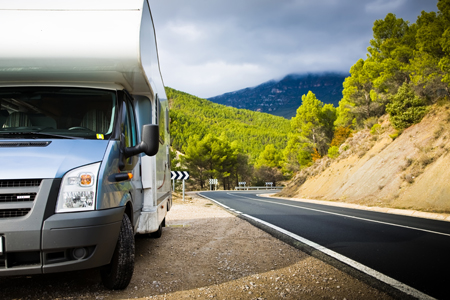
Air suspension systems
In recent years air suspension systems have become increasingly popular with motorhome owners looking for a smoother, more controlled drive and easier levelling.
Fitting a system to your motorhome will increase its stability on motorways and in strong cross winds. Increasing the air pressure this way also alleviates ‘sagging’ on the rear suspension caused by overloading. Steadiness at roundabouts and cornering is also improved.
If you modify your motorhome using an air suspension system you must inform your insurance provider. It’s not considered a ‘performance enhancing’ modification and therefore won’t incur a large increase on your insurance premium but it’s still important to keep details of the vehicle up-to-date on your policy. Although you may again wish to add the system’s cost (which could be between £500-£1000) to the insured value of the motorhome which may add a few pounds to your insurance price.
Systems should always be fitted by a professional. Depending on the make, model and chassis type, fitment can be completed on the same day.
Popular air suspension systems include Airide and Drive Right. The AS Air Suspension system – another common choice – is a slightly more expensive option and comes with a built in compressor that can be operated from the driver’s seat.
Alloy wheels
If you are a Caravan Guard customer, upgrading your motorhome’s tired rims to shiny new alloys will not result in a crazy hike in your insurance policy but a set of expensive wheels could significantly increase the overall value of the motorhome so you must let your insurance provider know when you plan on having them fitted.
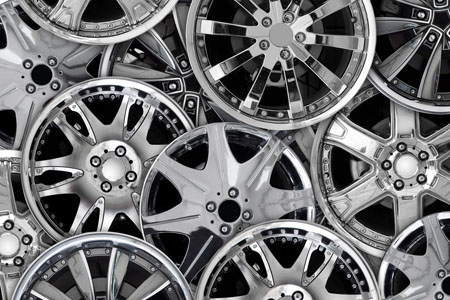
After all, making sure the sums insured on your motorhome policy are accurate is always important to ensure you are fully covered in the event of a claim!
Cruise control
Being able to use cruise control in your motorhome is sure to make those long journeys more enjoyable. That’s because they allow the driver to switch to ‘cruise’ mode to maintain a consistent speed.
If cruise control is retro fitted to your motorhome it must be professionally installed to have no effect on the policy. Don’t forget you have to let your insurance provider know if you do decide to fit cruise control.
Disability modifications
Modifications made to cater for a disability do not pose a great insurance risk so won’t be penalised in terms of insurance cost. They must, however, meet DVLA conditions for licence and should always be professionally fitted. Like all other modifications these must be made known to your insurance provider and should be reflected in your motorhome’s insured value.
For more details about our cover, click to read our motorhome insurance policy document.


Hello all,
I asked my insurer if fitting a bull/nudge bar to our Motor home would incur an increase in the policy price, and was shocked to find they would not increase the price of my insurance, they just would refuse to insure the Motor home full stop.
Hi Trevor
We would not insure motorhomes fitted with a bull bar as they are not an acceptable modification. It is not illegal for vehicles to be fitted with bull bars, but the Department for Transport doesn’t recommend it unless it has been shown that they don’t pose an additional risk of injury to other road users.
‘we recommend that all modifications are carried out by a professional’ your words well there’s a subject,I had little run in with a supplier a few years ago who supplied me with an electric motor that turned out to be faulty after I had removed it and taken it back he refused to replace said motor stating that I was not qualified to do such work – even though I had explained to him that as an apprentice trained (7years) engineer with a HND in development engineering and a degree in mechanical engineering and been doing that sort of work all my working life – so it ended in a court, and guess what he got his but kicked. so I just because you don’t work in a particular area does not mean you can not fit equipment.
Hi David,
Many thanks for getting in touch. Whilst you obviously have the expertise to make modifications to your motorhome at home, not everyone does. We recommend all modifications be done by a professional as a preventative measure. If the modification is found to be improperly fitted and proves to be the cause of an accident or damage, the insurance company who paid out on the loss may pursue the negligent party to seek reimbursement.
Many thanks
Caravan Guard
I find this ‘MUST be fitted by a professional’ attitude irksome. OK I accept that you say ‘SHOULD’ sometimes. As an electronics engineer with 30 years working in research and development I am irritated that I am supposed to employ someone less able than myself to fit, for instance, an alarm. Don’t we all remember the false alarms given off by cars with badly, professionally, fitted alarms? The reason they did that was because the professionals would use crimp wiring connectors which have a connection resistance. You need to solder all wiring connections in an alarm otherwise it will continually give false alarms. And yet because I am not on some ‘register of approved alarm fitters’ I am not allowed to fit an alarm. I can design them myself, I don’t need to buy one. I designed and built myself a 12v conversion for my scooter when I was 17, I designed and built an electronic ignition for my mini when I was 21, I designed, built and marketed a reversing sensor system in the late 1990s. I sold thousands of them to Rover. However I am not allowed to do anything to my motorhome because I am not a member of this or that trade body. Actually I can, but rumours abound about insurance companies refusing to pay out because of some irrelevant modification, such as not paying for a crash because you have a TV aerial you didn’t tell us about. I hasten to add that I have no reason to think that Caravan Guard would do that but there remains that underlying suspicion.
………….I must now spend the morning going over my motorhome and list the modifications. That will fill a sheet of A4. But thank you for this useful post, it is interesting to see that some mods that I thought would increase the premium actually do not. That is encouraging.
I am arranging for Drive Right air suspension to be fitted to my motorhome next month and was wondering if it was necessary to inform the insurance company. I will be in as soon as the work has been completed
Yes, we’d recommend calling to let the insurance company know in advance of having the air suspension fitted.
i found your e mail of great interest in particular the engine mapping of which i have considered fitting, any information on insurance musts i consider to be vital, well done caravan guard.
Thanks Richard! It’s important that we shed a little light on these areas, things aren’t always straightforward.
Glad you liked the post and e-magazines.
Reading your article about retro fitting cruise control brought back memories.. I think i invented it in 1972!. I used to travel up the M1 in an old mini, and to relieve the pressure on my right ankle, I tied a piece of string round the throttle pedal, routed it under the brake pedal, and held the end in my left hand. The string was just enough to hold the pedal in place. When I needed manual control back I just let go of the string! Those were the days. Sorry, just thought I would share that with you and make the insurance mans eyes water 🙂
Andrew
Cruise control can be retrofitted even on older vehicles. Try looking at Gold Cruise or Conrad Anderson. I suspect a manufacturer/franchise wouldn’t be so keen to install a factory installation as an accessory, but good luck if they can.
Not so long ago, it would have been unheard of for an insurer to communicate with their customers in this way. Your news and reviews are there to be help full and informative and I am appreciate the effort you put in when I read them . Whilst your chosen news items cannot be all things to all customers, they can certainly be interesting and occasionally inform decision making. The re-mapping item was of particular interest to me – thank you.
It’s great that you found the article useful Les, thanks.
Caravan Guard
Hi there I do enjoy reading your email you send,even though I’m not insured this yer as the superb “Knaus sun ti” is undercover on blocks with cardboard in the windows,battery’s off,behind locked gates (to much to do and to little time) and needing timing belt,brakes and other important jobs doing all by me.i fitted italian made alloy wheels a few years ago and asked I think it was “frank pickles” he said you don’t need to declare if you had a claim they just wouldn’t pay for the wheels your insurance wouldn’t be void ( is this true ) I was in the motor trade for years so I do everything myself and that’s the only thing missing of our motor home ‘cruise control’ ( electronic ) which will be fitted by me how do you go on when fitting items yourself regarding insurance ? Ps I still have my insurance card from you with the number 0001.
Hi Gary, we recommend that all modifications are carried out by a professional.
If in doubt, you can speak to one of our advisers on 0800 14 88 400.
Thanks
Caravan Guard
David Beale, those ‘who writes this stuff’ are not so bigotted as to snobbishly believe that everyone is touring in a post 2006 Fiat/Peugeot based turbo diesel. As it happens, I am, but have great respect for those who aren’t, clearly you don’t. Rant over. Great advice by the way CaravanGuard!
I was unaware that cruise control could be retro-fitted, something which I really miss on my 2003 Compass Motorhome. I will enquire about the cost when I next visit the Peugeot garage.
I have seen it claimed that even fitting a screen camera must be declared. Many motorhome users have these to guard against “contrived” accidents.
On a motorhome (well,on mine at least) it can be fitted to the screen so that it is entirely behind the rear view mirror, so obscuring the view is not an issue.
A windscreen camera is not one you’d need to tell us about Dave. Though if it was permanently fitted and had cost a lot of money, you may wish to relect its value in your motorhome’s sum insured.
Kind regards
Craig
Caravan Guard
I guess 99% of British campervans have turbo-diesel engines so retro-fitting a turbocharger or converting to LPG are non-starters. Who writes this stuff?
Hi David
Thanks for the feedback.
We have customers with motorhomes up to 25 years old. Not all are turbo diesel engined. We have a decent number of customers who have had LPG conversions. We’re trying to cater for all our customers in our blog material.
Kind regards
Craig
Caravan Guard